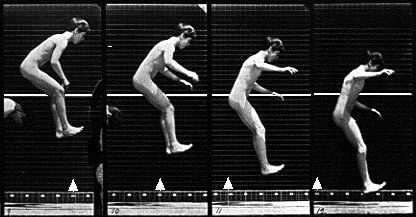
Fashioning the Body: Versions of the Citizen, the Self, and the Subject
The Evergreen State College | Fall 2007-Winter 2008
User Login |
corpus - george katsiaficas on negri and the social cyborgFrom "The Subversion of Politics" From the Fetishization of Production to the Production of FetishNegri developed the term "social factory" to include as "producers" women in the home and students in schools and a vast number of other people. For Negri, the "collective work experience" is more than primary; it is the only real activity of humans. He organizes his own theoretical schema according to his notion of production, and every arena of interaction is understood through that prism: "Production and society have become one and the same thing."6 In contemporary societies, he understands an extension of the principles of production: "Work and life are no longer separate." Negri's mentor Althusser saw theory as a form of production; Deleuze and Guattari portray the unconscious as the producer of desire;7 and now Negri tells us that revolution is a production led by "machines of struggle."8 Metaphors for revolutionary organizations have had interesting formulations: organs of dual power, vehicles for the propulsion of revolutionary consciousness, a transmission belt of revolutionary ideas to the working class, and now Negri's "machines of struggle," or better, his new formulation, "cyborg": The cyborg is now the only model available for theorizing subjectivity. Bodies without organs, humans without qualities, cyborgs: these are the subjective figures today capable of communism.9 His choice of words reveals a fetishization of the labor process also present in his idea that human beings can so easily be emptied by the social economy of qualities that differentiate us from machines. Negri can only think in terms of this one dimension, so even his political strategy is transformed into a type of production: It seems sort of shrill appeal to an a priori or "self-evident" distinctions between "humans" and "machines" as a basis for a liberatory politics, but at the same time one can't help but realize how beneficial the breakdown of the "Enlightenment distinctions" can be to Apple and Microsoft.
Submitted by Connor on Tue, 11/13/2007 - 4:44pm. Connor's blog | login or register to post comments | printer friendly version
|
Who's onlineThere are currently 0 users and 1 guest online.
Events
|
|||||||||||||||||||||||||||||||||||||||||||||||||